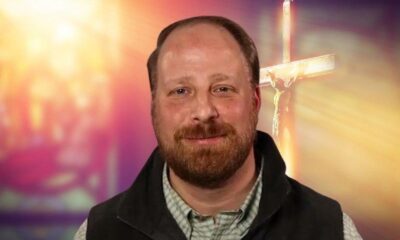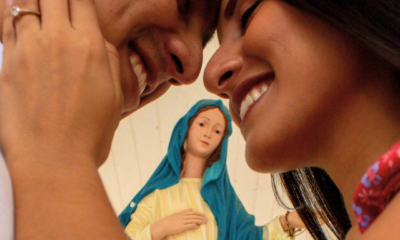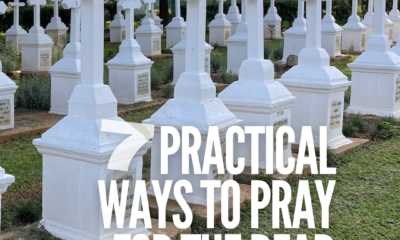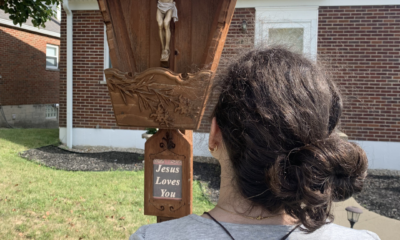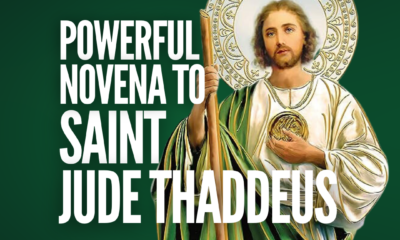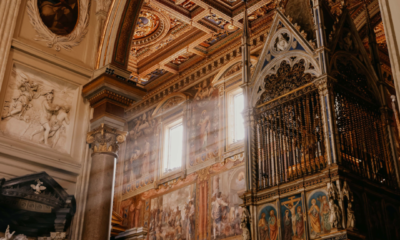God
The Strength in Obedience: 3 Saintly Men Whose Humble Lives Illuminate the Divine Power of God
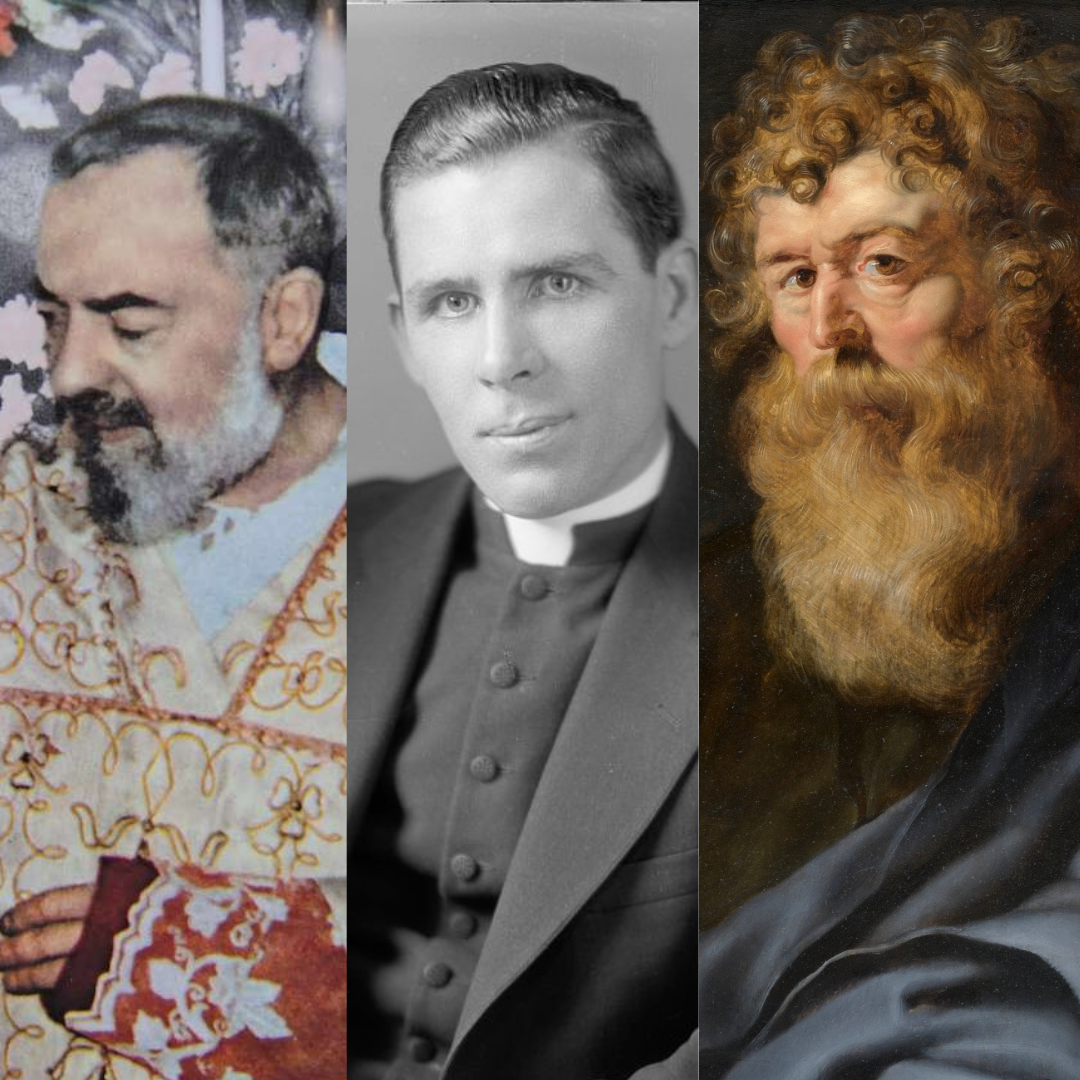
The Catholic faith is full of contradictions. Blessed are the persecuted, suffering brings glory, humility is stronger than pride.
OMG, this paradox seems absurd. However, Christians know through the power of God that “the foolishness of God is wiser than men, but the weakness of God is stronger than men.” (1 Corinthians 1:25)
God knows our weaknesses and has given us more than the promises of the Bible. He has proven through the lives of His saints that His ways are higher than our ways.
Let’s look at three saints who revealed the power of God through their lives of humble obedience.
One. Saint Paul
There is an often overlooked story about St. Paul that begins in Acts 21.
When Paul arrived in Jerusalem, he met the bishop, Saint James. St. James expressed his fear that Paul’s sermons would offend the early Christian Jews, who believed that believers should obey Jewish law. So James told Paul to appease the Jews by swearing in the temple. This was no small request.
Paul was persecuted by anti-Christian Jews throughout the empire. And he knew exactly what was going to happen in Jerusalem (Acts 20:22-23). He could have been attacked, beaten and imprisoned.
However, even though Paul was the greatest orator among the apostles, he always submitted to the church hierarchy (Galatians 3:13). 2:2). This situation was no different, so he went to the temple. Paul’s humble submission in the face of suffering reveals not only the level of obedience to which we are called as Catholics, but that it was all part of God’s plan.
As the crowds surrounded Paul in the temple, the Roman garrison arrested him. While in prison, Paul wrote letters that shed light on Catholic teachings and continue to inspire countless Christians to this day. In addition, he was sent to Italy, where he helped fulfill God’s plan to make the Church not only holy and apostolic, but also Roman. 2. Saint Father Pio
Padre Pio is probably the most famous saint of the 20th century. His recorded miracles stand in stark contrast to the secularism of our time. However, during his lifetime, senior church leaders were not only skeptical of the priest, but hostile to him. Padre Pio’s superiors suppressed his public service so harshly, in an attempt to discourage the faithful around him, that Padre Pio called it a “prison”.
He was ordered to celebrate Mass in private, unable to answer letters from the public, unable to discuss his stigmata, cut off from his close friend and spiritual director, and unable to hear confession. Talk to regular people. To varying degrees, his trial lasted more than a decade. But because the abuses were committed against him and the faith of the people was not threatened, Padre Pio surrendered.
“You should blush with shame and be afraid,” Padre Pio told a friend who suggested threatening the Vatican to lift the restrictions. Another time he wrote: “The hand of the Church is sweet even when it beats you.”
But Padre Pio won through God’s way, not man’s way. His obedience, sacrifice and prayer brought more than just slander and threats.
Eventually, the Vatican realized its mistake and lifted all restrictions without firing a rhetorical barrage. His loving silence was victorious.
Three. Dear Fulton Sheen
Fulton Sheen may not have been officially canonized, but his story is still pretty cool.
Bishop Sheen is known for his TV show “Life is Worth Living” and his extraordinary efforts to help the poor through the Society for the Promotion of Faith (SPF). At the SPF, he was involved in a long-running conflict with his immediate superior, Cardinal Spellman. Simply put, Spellman took powdered milk from the government, and the government gave it SPF.
Spellman asked Sheen to pay him millions of dollars for the milk. When Sheen refuses and discovers that Spellman is taking the milk for free, the Cardinal explodes and vows revenge.
Over the next decade, Spellman did just that (note: they are sometimes persecuted for trivial reasons). Sheen was eventually fired from his TV show, removed from the SPF and appointed head of the Diocese of Rochester. The position was so unsuitable for him that he resigned after three years. Sheen has never publicly commented on the issue.
Rather, he saw God’s hand in everything and realized that this trial was another form of purification that would bring him closer to heaven. What should have been others defending their wounded pride was, with God’s help, turned into glory.
-
God6 months ago
From Darkness to Redemption: A Powerful Catholic Conversion Story of a Former Protestant & Recovering Addict.
-
God6 months ago
Britney Spears’ Heartfelt Revelation Sparks an Outpouring of Empathy on Social Media as She Opens Up About Her Difficult Decision
-
God6 months ago
Nurturing True Love in Marriage: 3 Essential Ways for Catholic Husbands to Deepen Their Love for Their Wives
-
God6 months ago
7 Meaningful Ways to Remember and Pray for Our Loved Ones in Holy Souls November
-
God6 months ago
Unveiling the Power of the Brown Scapular: Young Catholic Students Share Their Stories of Supernatural Protection in Everyday Life
-
God6 months ago
Unmasking the Hidden Agendas of Mainstream Diaper Companies: Discover the Pro-Life Alternatives Catholics Should Be Aware Of
-
God6 months ago
Discover the Saint of Hopeless Cases: Learn How to Pray the Potent Novena to Saint Jude, Patron of the Impossible
-
God6 months ago
Bishop Robert Barron Embarks on an Enchanting Virtual Pilgrimage to Discover the Splendors of Rome’s Basilicas, and It’s All Happening on Social Media







